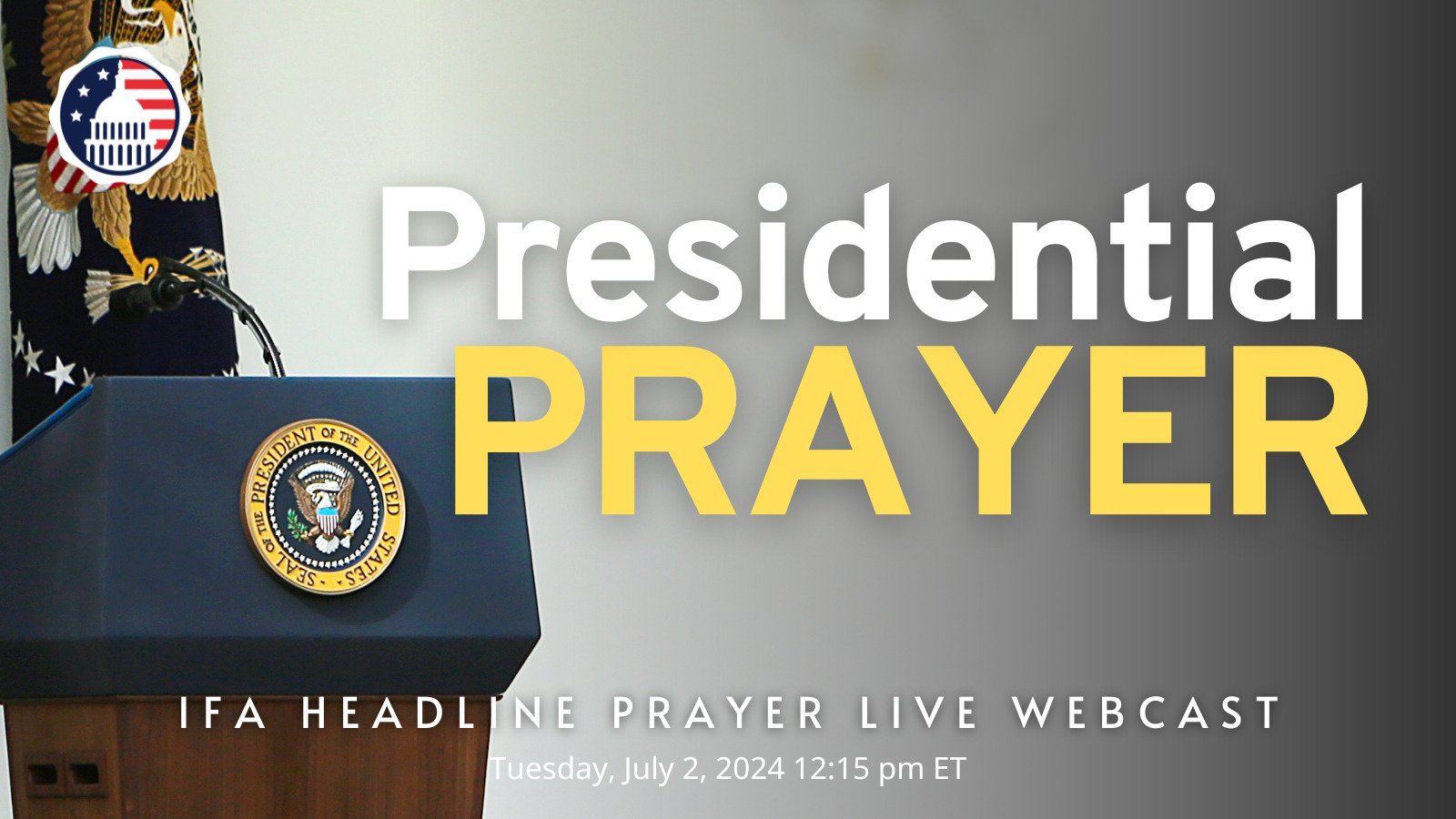 Reading Time: 4 minutes
Reading Time: 4 minutes
Legal expert Phillip Juaregui of Judicial Action Group culled direct quotes from the decision to help intercessors understand what was decided in Trump v. U.S.
On July 1, 2024, the Supreme Court issued a decision in the case of Trump v. United States.
The vote was essentially 6-3.
ROBERTS , C. J., delivered the opinion of the Court, in which THOMAS , ALITO , GORSUCH, and K AVANAUGH, JJ., joined in full, and in which BARRETT, J., joined except as to Part III–C. THOMAS , J., filed a concurring opinion. BARRETT, J., filed an opinion concurring in part. SOTOMAYOR, J., filed a dissenting opinion, in which K AGAN and JACKSON, JJ., joined. JACKSON, J., filed a dissenting opinion.
The court addressed three types of immunity and then addressed four criminal counts against President Trump.
Immunity relating to core constitutional powers
At least with respect to the President’s exercise of his core constitutional powers, this immunity must be absolute. As for his remaining official actions, he is entitled to at least presumptive immunity. (Emphasis added.)
The Court thus concludes that the President is absolutely immune from criminal prosecution for conduct within his exclusive sphere of constitutional authority. (Emphasis added.)
Immunity relating to acts within outer perimeter of his official responsibility
Taking into account these competing considerations, the Court concludes that the separation of powers principles explicated in the Court’s precedent necessitate at least a presumptive immunity from criminal prosecution for a President’s acts within the outer perimeter of his official responsibility. (Emphasis added.)
No immunity for unofficial acts.
As for a President’s unofficial acts, there is no immunity. (Emphasis added.)
Court Addressed 4 Criminal Counts Against President Trump
Count 1: The indictment alleges that as part of their conspiracy to overturn the legitimate results of the 2020 presidential election, Trump and his co-conspirators attempted to leverage the Justice Department’s power and authority to convince certain States to replace their legitimate electors with Trump’s fraudulent slates of electors.
Held 1: Because the President cannot be prosecuted for conduct within his exclusive constitutional authority, Trump is absolutely immune from prosecution for the alleged conduct involving his discussions with Justice Department officials.
Count 2: The indictment next alleges that Trump and his co-conspirators “attempted to enlist the Vice President to use his ceremonial role at the January 6 certification proceeding to fraudulently alter the election results.”
Held 2: The indictment’s allegations that Trump attempted to pressure the Vice President to take particular acts in connection with his role at the certification proceeding thus involve official conduct, and Trump is at least presumptively immune from prosecution for such conduct.
The question then becomes whether that presumption of immunity is rebutted under the circumstances. It is the Government’s burden to rebut the presumption of immunity. The Court therefore remands to the District Court to assess in the first instance whether a prosecution involving Trump’s alleged attempts to influence the Vice President’s oversight of the certification proceeding would pose any dangers of intrusion on the authority and functions of the Executive Branch.
Count 3: The indictment’s remaining allegations involve Trump’s interactions with persons outside the Executive Branch: state officials, private parties, and the general public.
Held 3: Determining whose characterization may be correct, and with respect to which conduct, requires a fact-specific analysis of the indictment’s extensive and interrelated allegations. The Court accordingly remands to the District Court to determine in the first instance whether Trump’s conduct in this area qualifies as official or unofficial.
Count 4: The indictment also contains various allegations regarding Trump’s conduct in connection with the events of January 6 itself. The alleged conduct largely consists of Trump’s communications in the form of Tweets and a public address.
Held 4: Whether the communications alleged in the indictment involve official conduct may depend on the content and context of each. This necessarily factbound analysis is best performed initially by the District Court. The Court therefore remands to the District Court to determine in the first instance whether this alleged conduct is official or unofficial.
Please post a prayer in the comments!
Phillip Jauregui is President of Judicial Action Group, and senior counsel for AFA Action and director of the Center for Judicial Renewal. He served as law clerk to Chief Justice Hooper, Alabama Supreme Court and Assistant Legal Advisor to Alabama Governor Fob James. He has appeared on Fox News, CNN, CNBC, ABC, and other news programs and his work has been featured in various publications including the New York Times, Washington Post, Los Angeles Times, and others. He is an Allied Attorney with the Alliance Defense Fund and serves on the boards of Church of the Highlands, the Justice House of Prayer, and two Christian missions to the people of the Basque County of Spain. He graduated from the University of Alabama, and Samford University’s Cumberland School of Law. He is admitted to practice law in Alabama and before the United States Supreme Court. Photo credit: By Gage Skidmore from Peoria, AZ, United States of America – Donald Trump, CC BY-SA 2.0, https://commons.wikimedia.org/w/index.php?curid=49611649.

